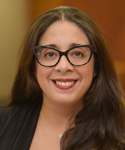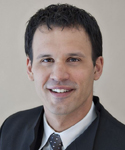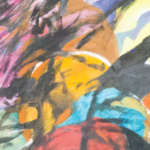Given the likelihood that many applicants will have to submit a rank list without having seen the hospital, clinics or—possibly—even the city, we prerecorded short videos, including a welcome to the program, as well as a fellow-led campus tour. We provided detailed information about the program and faculty in advance of the interview day and had contact numbers and back up options to ensure we could troubleshoot, in case there were technology difficulties from either side.
To try and reproduce some of the high-value interactions that occur in live interviews, we set aside time for the candidates to participate virtually in didactic conferences, as well as time to discuss and chat with the fellows informally. To try and increase exposure and interaction with various faculty members, we incorporated a few panel interviews as well, which we had not done for in-person interviews.
This season is quite different from prior interview seasons, and rapid adjustments have had to be made from the perspective of programs, as well as candidates.
Dr. Kolfenbach: Even though we have all learned to adapt to Zoom meetings, I miss the in-person interviews. That has been the biggest challenge for me personally, as a program director during the interview process. We noticed an increase in the number of applicants applying from the East and West Coasts, which could be due to the reduced cost of virtual interviews. Some of the applicants may not have visited Colorado before, which I think would be a big challenge for applicants in determining if a program—and its location—is the right fit.
 Dr. Blanco: I feel like we have been able to make nice, meaningful connections over Zoom. The virtual interviews, however, have the benefit of making it possible for fellows who may not have the income or time allotment to interview more broadly to explore our program.
Dr. Blanco: I feel like we have been able to make nice, meaningful connections over Zoom. The virtual interviews, however, have the benefit of making it possible for fellows who may not have the income or time allotment to interview more broadly to explore our program.
TR: Do you feel video-based interviews are working for you?
Dr. Dua: So far, the interview season has gone quite smoothly. We have not had major technology failures or issues that could not be handled relatively simply. Without having the knock on the door to warn that time is wrapping up, we put in virtual clock reminders at five minutes and again at one minute before the interview ends so people were not cut off mid-sentence. The feedback has been quite positive from both faculty and candidates in terms of the process.




